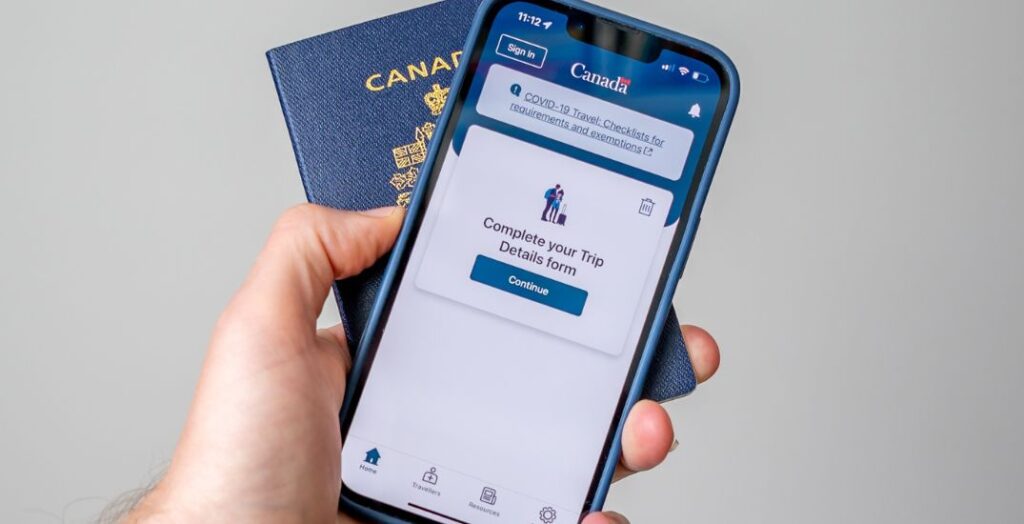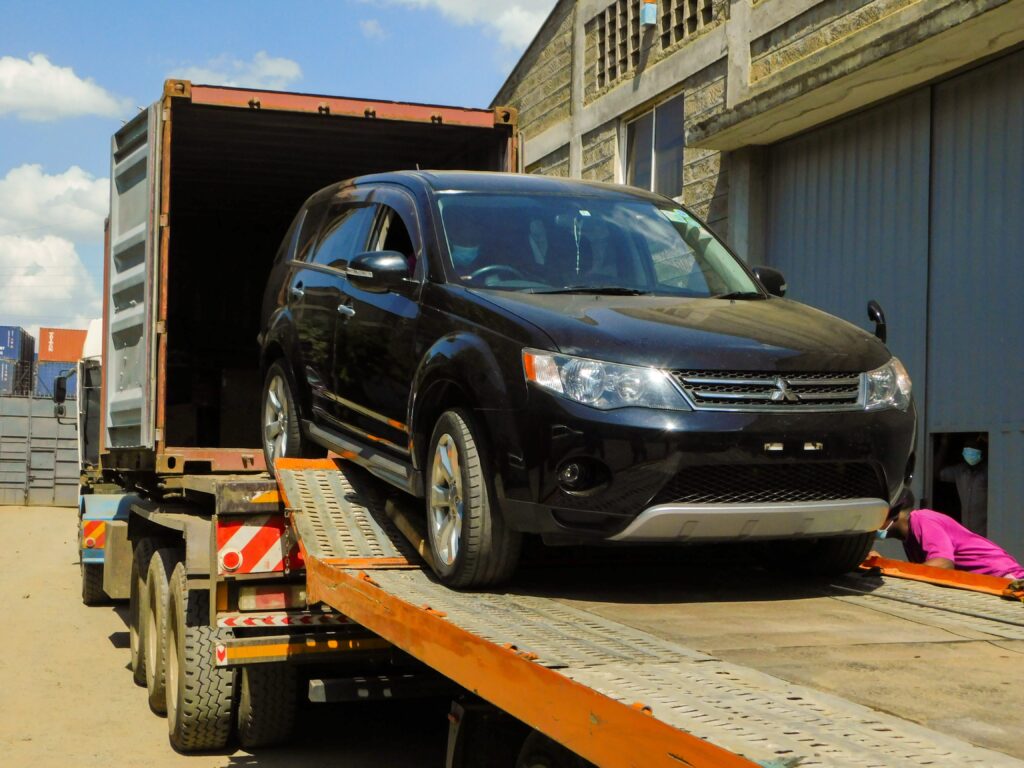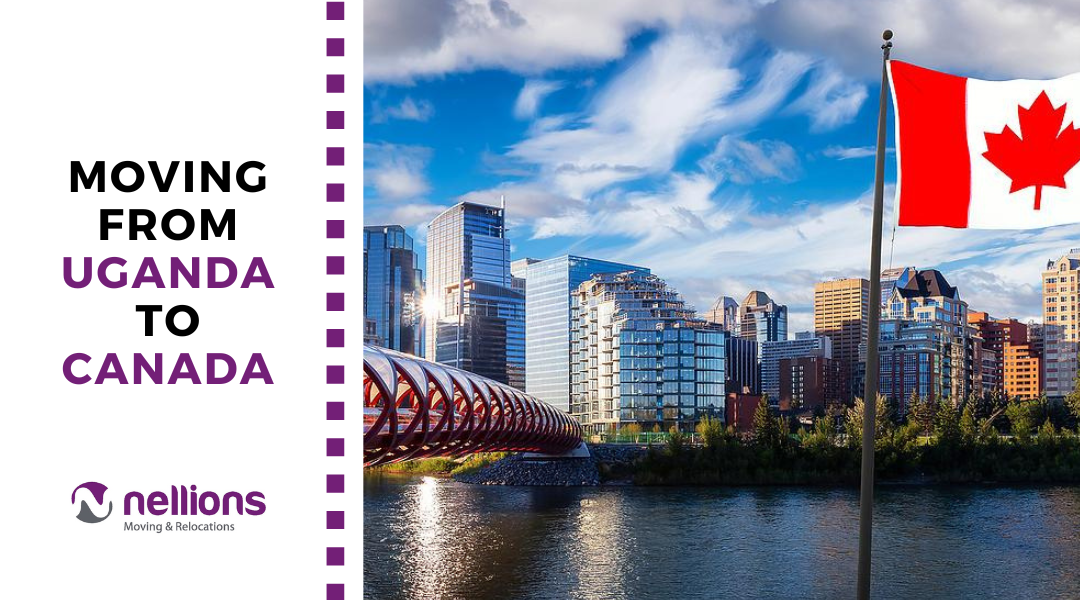If you think of Canada as a new country to live in, you will be glad you came across this article first. Canadian immigration is open to all kinds of professionals, and studying in Canada can be an excellent option for you. Before you apply for any visa program, you must understand the facts and information regarding shifting to Canada. Shifting Uganda Canada can be challenging, but it isn’t impossible. Here are some pieces of advice to get you started.

1.You Need Certain Documents to Import Used Household Goods and Personal Effects
To get your household goods and personal effects into Canada, you must ensure you have the right documents. These documents include the following:
- Copy of your passport (the photo page only)
- Proof of your residency abroad (for at least 12 months)
- Detailed inventory or packing list (in either English or French)
- Personal effects accounting document (Form BSF186)
- Original bill of lading (OBL) or air waybill (AWB)
- Immigration papers (if applicable)
- Liquor permit (if applicable)
- Student visa (if applicable)
- Work permit (if applicable)
If you’re a seasonal resident of Canada who plans to import your used household goods and personal effects, you will need certain documents to prove that you reside in the country. Some documents showing proof of residency include a copy of a deed, lease agreement, or sales agreement.
You may also bring some inheritance items if you’re importing used household goods and personal effects. If that’s the case, you’ll need to produce a copy of the will, death certificate, or a letter from the executor of the concerned estate.
2. Used Household Goods and Personal Effects Are Eligible for Duty-Free Entry Under Certain Conditions
Under certain conditions, Canada allows those returning to the country and former residents shifting back to Canada from other countries to import household goods and personal effects without paying duty on them. These conditions include:
- They owned and used the goods for at least six months before they were brought into the country.
- They must have lived abroad for at least 12 months and are exempted from the 6-month ownership rule if they have lived abroad for five years or more.
- The goods they ship do not include items that will be sold or disposed of within 12 months of importation.
- The total value of their personal or household items (including a motor vehicle) doesn’t exceed CAD$10,000 on the date of importation.
Canada normally charges duties and taxes on any imported goods valued at over CAD$10,000 on the date of importation. These levies are only applicable for household goods and personal effects that former residents who choose to resume residence in Canada import.
Meanwhile, people shifting Uganda Canada for the first time to establish a residence of one year or more (settlers) are exempt from paying duties on the goods they bring with them, provided that they have owned, possessed, and used those goods abroad for one year or more.
In order to enter Canada, the goods must meet specific requirements. They cannot be sold or disposed of 12 months after importation.
Diplomats can import their goods tax and duty-free into Canada. However, the Canadian Ministry of External Affairs requires them to obtain an obligation for the privilege.
3.Certain Goods Are Ineligible for Duty-Free Exemption
Shifting Uganda Canada, Canada allows you to bring in your household goods and personal effects without paying duty, but some items are subject to duty. These include:
- Farm equipment
- Items you’ve bought on your way to Canada
- Vehicles you plan to use for commercial purposes
- Items you’ve leased or rented (these aren’t considered items you own)
- Equipment you plan to use in contracting, construction, and manufacturing
You must declare all gifts to the Canada Border Services Agency (CBSA). However, you:
- You may even have to pay taxes and duties for gifts worth more than CAD$60.
- May have to pay duties on alcohol and tobacco since they can’t be imported as gifts.
- Can bring your wedding gifts with you when you shift to Canada, and you won’t have to pay duty on them if:
- You plan to marry no later than three months after your arrival in Canada.
- You plan to get married no later than three months after your arrival in Canada.
Canada allows you to bring a small amount of alcohol and tobacco into the country without paying duty, taxes, or an import fee.
If you exceed the alcohol and tobacco limits your personal exemption allows, you may have to pay duties and taxes on the excess amount.
While you’ll have to pay duty on any item you bring with you that hasn’t been used (new items), When shifting Uganda Canada, you can bring most household goods and personal effects with you without having to pay duty. Some of the things you can bring duty-free include:
- Books
- Clothes and linen
- Antiques and furniture
- Jewellery and silverware
- Gifts worth CAD$60 or less
- Hobby tools and other hobby items
- Private collections of art, coins, or stamps
- Appliances such as a refrigerator
- Musical instruments
Expert Tip: If you’re unsure whether you must pay duty on some items, it’s best to bring your sales receipts and registration documents. A CBSA officer will help you out.
4.You’ll Need to Use ArriveCAN and Other Essential Documents to Enter Canada

The Canadian government requires that all travelers entering the country use ArriveCAN to provide mandatory travel information. The newest version of the application, available for iOS and Android as well as web browsers, should be used to submit your data.
In addition to the ArriveCAN, you must have other essential documents to shift Uganda Canada. These documents include the following:
- Canadian immigrant visa (if applicable)
- Valid passport or other travel documents for each family member traveling with you
- Confirmation of Permanent Residence for every family member traveling with you
- Two copies of a detailed list of all the household and personal items you’re importing
- Two copies of a list of items that’ll be arriving later, complete with their monetary value
Packing these documents in your luggage isn’t recommended, but you should always keep them with you.
Other documents that aren’t essential but which may be helpful include:
- Marriage certificates
- Driver’s license (International Driver’s Permit)
- Reference from your auto insurance company
- Trade or professional certificates and licenses
- Letters of reference from former employers
Bonus Tip: Bring your vaccination records if you have them. Canada requires children to have immunization or vaccination records to enroll in school.
5.You Must Declare Your Goods Upon Arrival in Canada
You must give a list of your goods to the border services officer you’ll encounter at your first point of entry in Canada during shifting Uganda Canada, whether or not you have them on arrival.
Settlers should prepare two copies of a typed list of all the goods they plan to bring into Canada. This list should:
- Show the value, make, and model number of each item. (if applicable)
- Divide your luggage into two sections, one for the items you’re bringing with you and the other for items arriving later.
To simplify this process, you can fill out a BSF186 – Personal Effects Accounting Document form before traveling. That way, you can give it to the Canada Border Services Agency (CBSA) officer that has been assigned to you when you arrive.
Apart from settlers, the BSF186 form should be completed by former residents, seasonal residents, or beneficiaries returning to Canada.
You will also be asked to fill out a Customs Declaration Card (E311 – Declaration Card) when you arrive in Canada before meeting with customs and immigration officials.
The E311 – Declaration form does not list personal and household goods you bring with you or which will follow you to Canada. When you arrive at a customs office, the lists of your items should be shown separately to an officer.
Instead, the Customs Declaration Card is meant to be used to declare the following:
- You must pay duty on items including alcohol, gifts, and tobacco.
- Business goods, animals, plants, food, firearms, or other weapons
- Any amount of money over CAD$10,000
Bonus Tip: You could face monetary penalties, criminal prosecution, or the seizure of your goods if you fail to report items that should be declared or make false declarations to a CBSA official
6.You’ll Need to Undergo an Immigration Medical Exam, but Your Pet Won’t Need Microchipping
In Canada, you must complete a medical exam if you’re applying to become a temporary resident and:
- You are shifting Uganda Canada to stay for more than six months
- You’ve spent at least six months in certain countries or territories (Uganda is one).
As a result, anyone shifting Uganda Canada will be expected to complete a medical questionnaire and pass a physical test.
Please note that you can only have your immigration medical exam done by a panel physician approved by Immigration, Refugees, and Citizenship Canada.
Unlike some countries, such as Australia, Canada does not require that your pet be microchipped before entry.
Your pet must have a Rabies Certificate in either English or French issued by a licensed veterinarian. An EU Pet Passport is also acceptable. The certificate should:
- Identify the breed, color, and weight of the animal
- Indicate the trade name and the serial number of the vet
- Let the certificate specify how long the animal’s immunity is good for.
All cats and dogs shifting Uganda Canada, with the exception of those from the United States, are subject to inspection at the owner’s expense.
- You Can Import Your Car Duty-Free for Personal Use, but Conditions Apply

Canada allows the duty-free importation of vehicles for personal use.
Work permit and student visa holders are exempt from paying duties and taxes on their vehicles while they are in Canada. However, they must import their vehicles on a temporary basis and re-export them upon departure from Canada.
For returning Canadians, a tax and duty exemption applies to the first CAD$10,000 of the value of their vehicle. To qualify for tax and duty exemptions, they must have owned and used their cars for more than six months.
Unfortunately, most vehicles that are sold in countries other than Mexico and the United States are normally not eligible for import into Canada.
That’s because Canada’s Motor Vehicle Safety Act (the Act) does not allow the importation of vehicles built and certified to meet the vehicle standards of a foreign country. Specifically, the Act prohibits the modification of such vehicles to meet Canada Motor Vehicle Safety Standards.
However, there are some circumstances that can be exceptional in which vehicles can be imported from outside the United States and Mexico. These include:
- The vehicle is at least 15 years old, based on the month and year it was made, and belongs to a class of vehicles regulated by the Act (it isn’t a bus).
- The vehicle is not regulated at the importation, meaning it does not belong to a class of vehicle regulated under the Motor Vehicle Safety Regulations body.
- The vehicle met all Canadian standards and was bought new in a foreign country by a manufacturer. You will need to pre-authorize its importation with Transport Canada.
- This vehicle meets U.S. safety standards, was bought new at retail in the United States, and has been shipped abroad from that country (it should also qualify for import via the Registrar of Imported Vehicles).
- The vehicle is a used car originally bought at retail in the United States and still compliant with U.S. standards (it should also qualify for import via the Registrar of Imported Vehicles).
Any attempt to import a vehicle that is not allowed into the country will be denied entry and detained. In such cases, all storage and disposal fees are your responsibility.
8.Vehicles That Fail the Registrar of Imported Vehicles (RIV) Inspection Can’t Stay in Canada
If your vehicle fails the Registrar of Imported Vehicles (RIV) inspection, it must be fixed before it can stay in Canada. It doesn’t matter if you have paid taxes and duties to bring it through customs.
Naturally, If you were a returning citizen or resident whose vehicle’s value exceeded the tax and duty exemption applied to the first CAD$10,000 of its value, you would have paid duties.
In addition to the RIV inspection, all imported vehicles are inspected by the Canadian Agricultural Inspection Agency upon arrival.
For this reason, it is recommended that your vehicle be clean and free of any soil or contaminants when it arrives. Steaming it to get out the dirt might even be necessary. As a rule, you should include receipts with your shipping documents as proof of cleaning.
Some of the documents you may need during shifting Uganda Canada and when importing your car include:
- Original bill of lading (OBL)
- Copy of passport (photo page only)
- Original proof of ownership (may be sent with the car)
- Previous registration documents
- Proof of insurance
Expert Tip: You can’t get a license for your vehicle in Canada unless it has been cleared through customs
9. The Shift Takes 6-10 Weeks, but You Must Be in Canada by the Time Your Household Goods Arrive
It takes about 6 to 10 weeks to ship your household goods and personal effects door-to-door from Uganda to Canada. It typically depends on which part of Canada you’re shifting to.
On the other hand, it takes about four to six days to clear household goods through customs. You can clear your goods through customs in person or through a licensed customs broker.
However, remember that Canadian customs require that you MUST be inside Canada before your goods arrive.
You should consider hiring a reputable shifting company. Using professionals will ensure that you import permitted goods into Canada and file the appropriate documentation accurately.
That’s a good way to avoid costly rejections by customs officials since release is not guaranteed.
When you decide to shift Uganda Canada, you will be welcomed into a warm, accepting, and eager community to guide you through your new life.
Conclusion
Suppose you are interested in shifting Uganda Canada and want to know how the Canadian immigration system works. In that case, this detailed and easy-to-understand article has provided you with an excellent idea about the shift. No matter what your current budget is, there are plenty of reputable shifting companies that can help you make the big Shift. It’s important to research your options and choose a company that has all of the features you need. From packing materials to insurance, there are a lot of shifting parts to this process.

